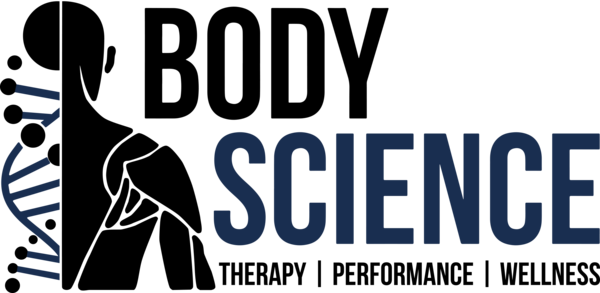
Neck pain is a common issue that affects many people, disrupting daily activities and diminishing quality of life. However, physiotherapy offers a proven approach to alleviating neck pain. This blog post delves into the causes of neck pain, the effectiveness of physiotherapy, first-line treatments, and supportive treatments that can help you recover faster. Understanding these aspects will help you make informed decisions about your health and recovery.
What Causes Neck Pain?
Neck pain can arise from a variety of sources, each affecting the muscles, ligaments, and vertebrae in different ways. One of the most common causes is poor posture, particularly in individuals who spend long hours hunched over computers or mobile devices. This posture puts strain on the neck muscles, leading to pain and stiffness.
Another frequent cause of neck pain is muscle strain, which can result from activities such as lifting heavy objects, sudden movements, or sleeping in an awkward position. Additionally, injuries such as whiplash from car accidents or sports-related incidents can cause significant neck pain by damaging the soft tissues and cervical spine.
Degenerative conditions, such as osteoarthritis and degenerative disc disease, are also major contributors to neck pain. These conditions result in the gradual wear and tear of the cervical vertebrae and discs, leading to chronic pain and reduced mobility. Lastly, nerve compression, where nerves in the neck are pinched by herniated discs or bone spurs, can cause sharp pain radiating down the arm.
How Physiotherapy for Neck Pain Works
Physiotherapy is highly effective in treating neck pain. Physiotherapists use a variety of techniques to address the underlying causes of pain, improve mobility, and enhance overall neck function.
- Initial Assessment: The first step in physiotherapy treatment is a thorough assessment to determine the specific cause and extent of the neck pain.
- Manual Therapy: This involves hands-on techniques such as mobilization and manipulation to reduce pain and improve joint function.
- Therapeutic Exercises: Designed to strengthen the neck muscles, improve flexibility, and correct posture. These exercises not only alleviate pain but also prevent recurrence by addressing muscle imbalances and weaknesses.
- Modalities: Acupuncture or microcurrent point stimulation (Dolphin Neurostim MPS) are very effective modalities to reduce inflammation, muscle tension, and pain, and improve quality of life.
- Client Education: Physiotherapists educate you on posture correction and ergonomic adjustments to reduce strain on the neck during daily activities.
This comprehensive approach ensures long-term relief and improved quality of life for individuals suffering from neck pain.
Effective First-Line Treatments for Neck Pain
The first-line treatment for neck pain typically involves conservative measures aimed at reducing pain and inflammation while promoting healing. These measures include:
- Rest: Allowing the affected muscles and tissues to recover without additional strain.
- Ice or Heat Therapy: Applying ice or heat can help reduce inflammation and relieve pain.
- Physiotherapy: Early intervention with physiotherapy can prevent the progression of symptoms and reduce the likelihood of chronic pain.
- Posture and Ergonomics: Adjusting the workstation, using supportive pillows, and avoiding prolonged periods of sitting or standing can significantly reduce neck strain and facilitate recovery.
By following these first-line treatments, you can often see significant improvements in your neck pain and overall comfort.
Supporting Neck Physiotherapy Treatments at Home
Performing neck physiotherapy exercises at home can complement professional treatment and help maintain improvements achieved during physiotherapy sessions. Here are some exercises and tips for managing neck pain at home:
- Neck Stretches: Gently tilt your head toward each shoulder, holding each stretch for 15-30 seconds. This helps increase flexibility and reduce muscle tension.
- Chin Tucks: Sit or stand up straight and tuck your chin slightly, creating a double chin. Hold for 5 seconds and repeat 10 times. This exercise strengthens the muscles at the front of the neck and improves posture.
- Shoulder Blade Squeezes: Sit or stand with your arms at your sides. Squeeze your shoulder blades together and hold for 5 seconds, then relax. Repeat 10 times. This exercise strengthens the upper back muscles, improving posture and reducing neck strain.
- Upper Trapezius Stretch: Sit on one hand and gently tilt your head to the opposite side, stretching the upper trapezius muscle. Hold for 15-30 seconds and repeat on the other side.
These exercises should be done regularly to help maintain neck flexibility and strength. It’s important to consult with a physiotherapist before starting any home exercise program to ensure the exercises are appropriate for your specific condition and to learn the correct technique.
The Role of Massage Therapy in Treating Neck Pain
Massage therapy plays a vital role in managing neck pain, offering relief from pain and tension while complementing physiotherapy treatments. Regular sessions with a trained massage therapist can significantly improve blood circulation, relax tight muscles, and reduce stress, contributing to overall neck health.
In addition to professional treatments, incorporating self-massage techniques at home can further aid in alleviating neck pain:
- Gentle Kneading: Use your fingers to gently knead the muscles along the sides and back of your neck. Apply light to moderate pressure, working in small circular motions.
- Using a Massage Ball: Place a small massage ball or tennis ball between your neck and a wall. Gently roll the ball along the muscles of your neck to release tension.
- Heat Application: Before massaging, apply a warm compress or take a warm shower to help relax the muscles and enhance the effectiveness of the massage.
It’s important to be cautious and avoid applying too much pressure, as this can worsen the pain. If you are unsure about how to properly massage your neck, consult with a physiotherapist who can provide guidance and demonstrate effective techniques. By combining professional massage therapy with these home practices, you can ensure a comprehensive approach to managing and relieving neck pain.
Potential Side Effects of Physiotherapy for the Neck
Physiotherapy for the neck is generally safe and effective, but like any treatment, it can have some side effects. Most side effects are mild and temporary, but it’s important to be aware of them:
- Soreness: It is common to experience some muscle soreness after physiotherapy sessions, especially if you are engaging muscles that have not been used extensively.
- Fatigue: Physiotherapy exercises target the muscles that are a bit weaker, leading to temporary fatigue as your body adjusts to the increased activity.
- Temporary Increase in Pain: Like many disciplines, occasionally physiotherapy can initially cause a temporary increase in pain as the body adapts to new movements and exercises. This typically subsides as treatment progresses.
These side effects are usually short-lived and should not deter you from continuing with your physiotherapy. If you experience severe pain or any other concerning symptoms, it is important to inform your physiotherapist immediately.
How Long Does It Take for Neck Pain to Go Away with Physiotherapy?
The duration for neck pain to improve with physiotherapy varies widely, influenced by the cause and severity of the pain, treatment consistency, and individual response.
Using our holistic and comprehensive approach, acute neck pain, resulting from a recent injury or strain, often shows significant improvement within 1-3 sessions of starting physiotherapy. Many people feel better after the first visit! Regular sessions and adherence to prescribed exercises are crucial in this recovery process. Chronic neck pain, which may stem from long-standing issues like poor posture, degenerative conditions, or previous injuries, will also respond within the first few sessions and can require a longer duration of therapy, depending on the individual’s goals.
Each person’s response to physiotherapy is unique, with factors such as age, overall health, and other medical conditions playing a role in the recovery time. Physiotherapists develop personalized treatment plans and provide ongoing evaluations to adjust the approach as needed. Patience and consistency are essential for achieving long-term relief and improved neck function.
Tips for Preventing Neck Pain
Preventing neck pain involves adopting healthy habits and making lifestyle adjustments to reduce strain on the neck. Here are some effective strategies to prevent neck pain:
- Maintain Good Posture: Ensure that your head is aligned with your spine and avoid slouching. When sitting, keep your feet flat on the floor, and use a chair that supports your lower back.
- Ergonomic Workspace: Adjust your workstation so that your computer screen is at eye level, your keyboard is at a comfortable height, and your chair provides adequate support. Take regular breaks to stand, stretch, and move around.
- Exercise Regularly: Engage in regular physical activity to strengthen the muscles that support your neck and improve overall flexibility. Incorporate exercises that focus on the upper back and shoulders to maintain good posture.
- Avoid Cradling Your Phone: Use a headset or speakerphone to avoid holding the phone between your ear and shoulder, which can strain the neck muscles.
- Sleep Position: Use a supportive pillow that keeps your neck aligned with your spine. Avoid sleeping on your stomach, as this position can cause the neck to twist.
By incorporating these practices into your daily routine, you can significantly reduce the risk of developing neck pain and maintain better overall neck health.
Leave Neck Pain in Your Rearview
Neck pain can significantly impact your daily life, but with the right approach, it is manageable. Physiotherapy offers effective treatment options that address the root causes of neck pain, promote healing, and improve overall function. If you’re experiencing neck pain and seeking effective treatment, consider visiting Body Science Therapy in Mississauga. Our team is dedicated to helping you achieve optimal health and well-being through personalized care. Contact us today to schedule your first visit and start your journey to a pain-free life.
Author
-
Since earning his Masters of Science in Physiotherapy in 2013, Mathew has been specializing in acute injuries, complex injury histories, recurring injuries, performance enhancement, and concussion management. He is one of few physiotherapists in Canada integrating advanced practices including P-DTR, Neurokinetic Therapy, Anatomy in Motion, and Neurofunctional Acupuncture.

